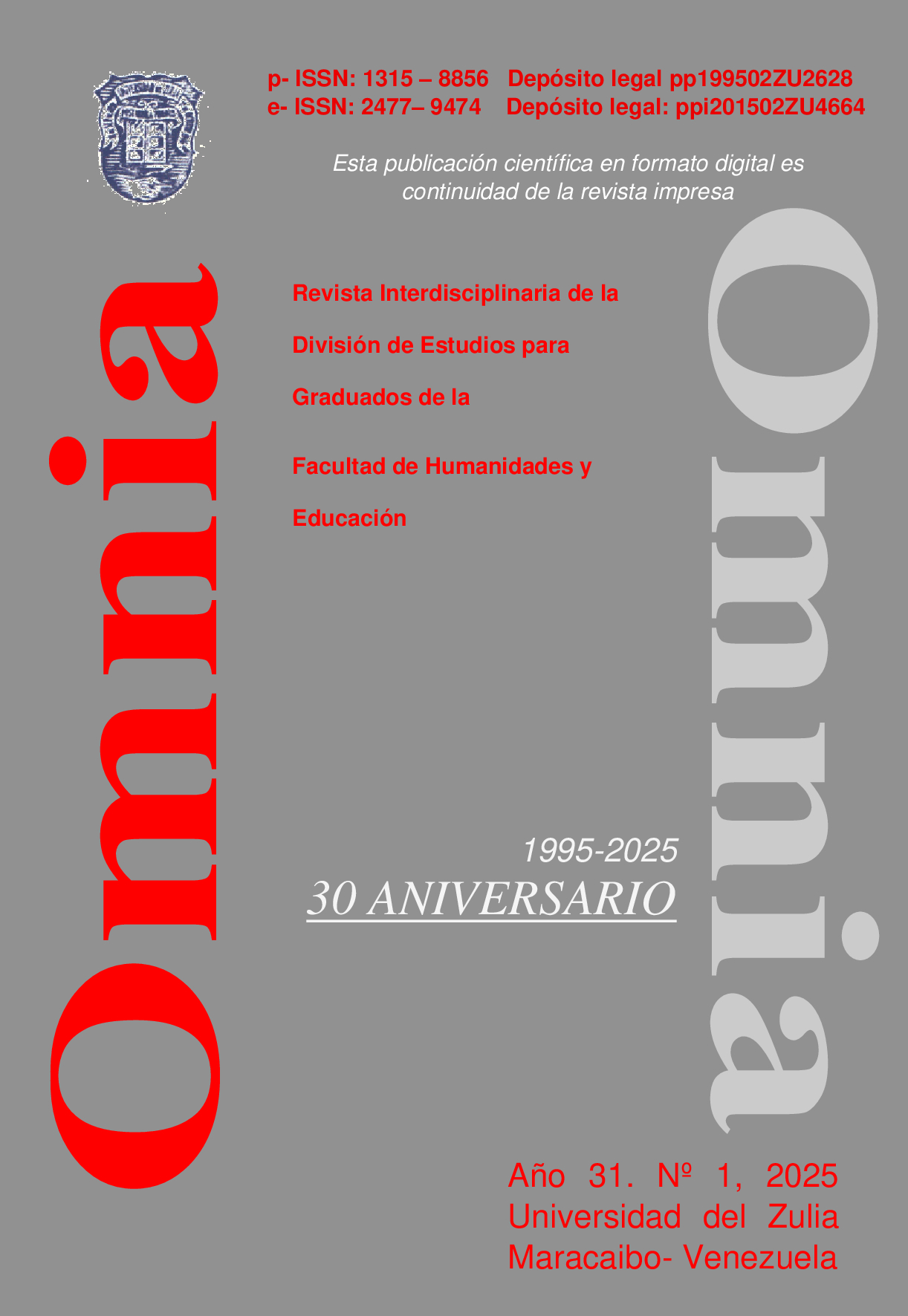Didactic knowledge of the content of the food and nutrition topic
Abstract
The purpose of this research was to analyze the didactic content knowledge of middle school teachers in relation to the topic of food and nutrition, based on the theoretical guidelines of Shulman (1986). This study was developed in the context of secondary education in the Mara municipality. From a qualitative methodological perspective, the introspective experiential epistemological approach was assumed, following the methodological guidelines of educational ethnography. In accordance with the research design, unstructured interviews and non-participant observations were used as information collection strategies. Among the main findings we can mention that teachers master the programmatic content, but do not emphasize the importance of the content for the social sphere. Therefore, it is concluded that the Didactic Content Knowledge of these teachers is still under construction. Understanding that Didactic Content Knowledge refers not only to the mastery of the content but also how it is taught and why it is taught
Downloads
References
Arteaga, Yannett (2008). Conocimientos y creencias de los docentes de ciencias naturales [Tesis doctoral, Universidad del Zulia]. Facul-tad de Humanidades y Educación, Maracaibo, Venezuela.
Camacho, Hermelinda y Marcano, Noraida (2003). El enfoque de inves-tigación introspectiva vivencial y sus secuencias operativas: Algu-nos casos de estudio. Revista Omnia, 9 (1). Universidad del Zulia, Maracaibo, Venezuela.
Cotán Fernández, Almudela (2020). El método etnográfico como cons-trucción de conocimiento: Un análisis descriptivo sobre su uso y conceptualización en ciencias sociales. Márgenes Revista de Edu-cación de la Universidad de Málaga, 1 (1), 83-103. Disponible en: https://revistas.uma.es/index.php/mgn/article/view/7241.
Magnusson, Shirley, Krajcik, Joseph y Borko, Hilda (1999). Nature, sources, and development of pedagogical content knowledge. En J. Gess-Newsome y N. G. Lederman (Eds.), Examining pedagogi-cal content knowledge (pp. 95-132). Dordrecht, TheNetherlands: Kluwer.
Mahan, Kathleen y Escott-Stump, Sylvia (2001). Nutrición y dietotera-pia de Krause. McGraw-Hill Interamericana, México.
Parga, Diana y Moreno, William (2017). Conocimiento didáctico del contenido en química orgánica: Estudio de caso de un profesor universitario. Revista Electrónica Educare, 21 (3), 45-65. Dispo-nible en: https://www.redalyc.org/journal/1941/194154512002/html/.
____________________ (2014). El CDC un espacio de diversidad teó-rica: conceptos y experiencias unificadoras en relación con la di-dáctica de los contenidos en química. Revista Educación Quími-ca, 25 (3), 332-334. Disponible en: https://www.scielo.org.mx/scielo.php?pid=-S0187893X2014000300007&script=sci_abstract.
Park, Soonhye y Oliver, Steve (2008). Revisiting the conceptualisation of pedagogical content knowledge (PCK): PCK as a conceptual tool to understand teachers as professionals. Research in Scien-ceEducation, 38(3), 261-284.
Quevedo, Beatriz (2005). Operatividad para elaborar la reflexión teórica de un trabajo de investigación siguiendo la ingeniería didáctica como metodología de investigación [Documento mimeografiado]. Valera - Trujillo.
Rodríguez, Clemente., Pozo, Teresa y Pérez, José (2006). La triangula-ción analítica como recurso para la validación de estudios de en-cuesta recurrentes e investigaciones de réplica en educación supe-rior. RELIEVE, 12 (2), 293. Disponible en: https://ojs.uv.es/index.php/RELIEVE-/article/view-/4231/3838.
Sandín, Paz (2003). Investigación cualitativa en educación: fundamen-tos y tradiciones. McGraw-Hill/Interamericana de España S.A.U., Madrid, España.
Shulman, Lees (1986). Those who understand: Knowledge growth in teaching. Educational Researcher, 15 (2), 4-14.





